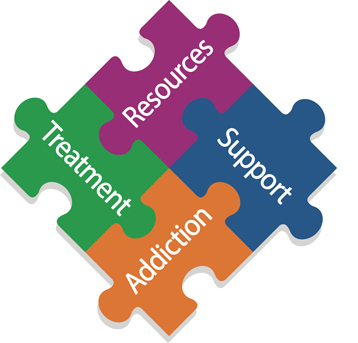Choosing an accredited addiction recovery center ensures access to comprehensive care.
Understanding Dependency Therapy: Checking Out Reliable Programs for Alcoholism Recovery and Mental Health And Wellness Assistance
Starting the journey toward recovery from alcohol dependency entails a comprehensive technique that resolves both the physical and emotional facets of dependence. Concurrently, psychiatric therapy and medication-assisted therapies are tailored to alleviate the underlying psychological health and wellness problems, frequently linked with dependency.

The Function of Medical Cleansing in Managing Alcohol Withdrawal
Medical detoxification plays an important duty in the administration of alcohol withdrawal, serving as the initial action in the trip in the direction of recuperation. This process meticulously keeps an eye on and deals with the intense physical signs of withdrawal that occur when an individual stops consuming alcohol. The main objective is to stabilize the patient literally and alleviate possible health and wellness risks related to withdrawal, such as seizures and ecstasy tremens.
Medical specialists usually carry out medicines to alleviate signs, handle pain, and stop difficulties. The controlled environment makes certain security, addresses nutritional deficiencies, and prepares people for the following stages of addiction treatment. Successful detoxification is vital, as it develops the structure for additional healing treatments, concentrating on lasting recuperation and relapse avoidance.
Psychotherapy Methods for Twin Diagnosis Therapy
Following the stabilization supplied by clinical cleansing, psychiatric therapy ends up being a crucial part in treating individuals with a twin medical diagnosis. Cognitive Behavior Modification (CBT) is typically employed to attend to maladaptive reasoning patterns, assisting clients comprehend and handle their behaviors and feelings efficiently. Dialectical Behavior Treatment (DBT), which emphasizes the development of coping abilities to handle stress and anxiety, control feelings, and enhance relationships, is especially useful. Integrative methods, integrating aspects from different healing techniques, dressmaker treatment to individual needs, boosting the effectiveness of double medical diagnosis monitoring. With these psychotherapeutic methods, individuals acquire insights into their addictive actions and psychological wellness problems, fostering an all natural healing process and significantly boosting their quality of life.

The Relevance of Medication-Assisted Treatment (FLOOR COVERING)
While psychiatric therapy deals with the emotional elements of addiction, Medication-Assisted Treatment (FLOOR COVERING) plays an equally essential function in resolving the physical obstacles. Floor covering makes use of FDA-approved medicines, such as naltrexone, buprenorphine, and methadone, to support mind chemistry, block the blissful impacts of alcohol, and relieve desires, leading the way for a lasting recuperation. These medications, when combined with behavior modifications, enhance treatment efficacy, minimize the danger of relapse, and help keep long-lasting soberness. By sustaining the organic basis of dependency, MAT addresses the comprehensive health and wellness demands of people, helping with enhanced outcomes in recuperation programs. This incorporated method guarantees a more robust structure for healing, highlighting the need of attending to both mental and physical health and wellness components in dependency treatment.
Incorporating All Natural Treatments Into Alcohol Dependency Recuperation
Although Medication-Assisted Treatment (FLOOR COVERING) is critical, integrating holistic therapies can dramatically boost the healing process for those fighting alcoholism. All natural therapies encompass a variety of non-medical meth addiction treatment recovery methods that focus on recovery the mind, body, and spirit. These might consist of yoga exercise, reflection, acupuncture, and art therapy. Each of these practices aims to improve psychological health, minimize tension, and improve total wellness, consequently supporting the psychological and mental facets of healing. By incorporating such therapies, treatment programs can supply a much more comprehensive method that not just deals with the physical signs of addiction but also promotes inner tranquility, self-awareness, and psychological strength. This integration aids individuals create healthier coping systems and a more powerful foundation for long-lasting sobriety.
Browsing Assistance Systems and Area Resources for Continual Recovery
After dealing with the person's holistic requirements in alcohol dependency healing, attention needs to also be offered to outside factors that contribute to continual soberness. Efficient recuperation programs emphasize the value of constructing strong networks, which can consist of support groups like Alcoholics Anonymous, family participation, and healing mentoring. Sustained recuperation is hence seen not only as a person's trip yet as a community-supported process, cultivating a setting where regular recovery is nurtured and celebrated.
Final Thought
In final thought, effective alcohol dependency healing programs incorporate a complex approach that consists of clinical detoxing, psychotherapy, and medication-assisted therapy. Incorporating holistic therapies and leveraging assistance systems are crucial for resolving both physical and mental wellness difficulties. Such thorough care not just aids manage withdrawal signs but also supports long-term sobriety and mental wellness, therefore boosting an individual's ability to lead a much healthier and extra meeting life post-recovery.